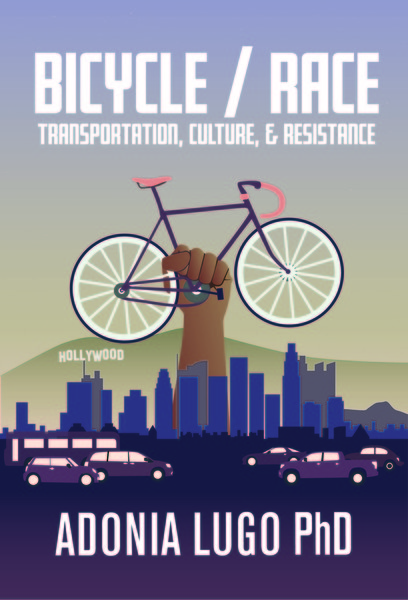I was riding the light rail in Seattle's transit tunnel on Monday, and saw a series of insurance ads on a station wall that followed a "my dream" theme. One read, "my dream has that new car smell." Isn't it weird how often car-oriented businesses advertise in public transit spaces?
For many people, car ownership is only a dream. Owning a car is very expensive. I recently interviewed a woman who told me that she spent more money on her car than on anything else. She had no plans to get rid of it, though; this was just a fact of life.
Why is the image of car ownership so powerful? Well, for one thing, if you don't have your own car and find yourself in a position where you take a ride from someone who does have a car, you can easily be labeled a "mooch." And being a mooch is very much at odds with our American belief in self-reliance.
For many years, especially in suburban areas, if you couldn't afford a gas-powered self-reliance symbol, you might as well not have existed. I read a comment thread online this morning that reminded me that this attitude is very much entrenched, even in urban dwellers. The statement that really hit home for me was, "in LA [driving is] ESSENTIAL. I would not date someone without a car, despite the fact that I take the train 5 days a week to work. You need a car for everything else and if you don't have one, you are a mooch. Simple as that." This comment was made by someone who identified as living in transit-rich Silver Lake.
I think this is the target of ads like the one I saw this week: people who are willing to ride buses and trains, but have a lot of money or dreams invested in differentiating themselves from the people around them who don't have cars waiting at home. What do these people think of the carfree crowd? We're not responsible/adult enough to be considered potential mates.
As an anthropologist, I've read a lot of theory about culture as an unconscious thing. We may not be able to articulate why we do or don't do certain things, but we are very likely to feel bothered when something is outside the norm. One source of conflict between people who drive and people who choose other modes of transport is that we have different ideas about what is normal transportation.
This is what I see expressed, sometimes indirectly, in a lot of American culture:
car ownership = adulthood
car ownership = independence
car ownership = work ethic
car ownership = rational
no car = immaturity
no car = dependence
no car = lazy
no car = irrational
Here are some different ideas that I see expressed in my corner of American culture:
car ownership = oil-dependence
car ownership = antisocial
car ownership = destroying our life systems
car ownership = irrational
From these different ideas follow a different side of the coin:
carfree = independence
carfree = social benefit
carfree = supporting our life systems
carfree = rational
Do you see how "rational" shows up all over the place here? That is because our transportation choices, influenced by so many cultural beliefs that we can't even articulate, are not coming from a rational place. I hope that someday soon we can start to talk about transportation in more direct terms, based not on underlying contempt for socially disempowered individuals, but on the very real effects our transportation choices have on the world around us.

